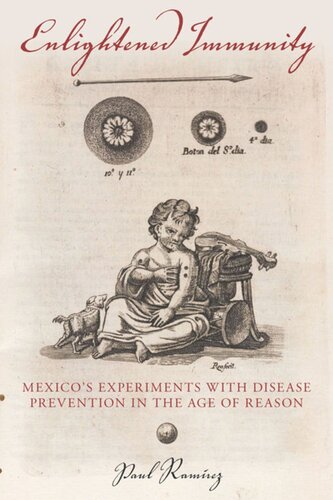

Most ebook files are in PDF format, so you can easily read them using various software such as Foxit Reader or directly on the Google Chrome browser.
Some ebook files are released by publishers in other formats such as .awz, .mobi, .epub, .fb2, etc. You may need to install specific software to read these formats on mobile/PC, such as Calibre.
Please read the tutorial at this link: https://ebookbell.com/faq
We offer FREE conversion to the popular formats you request; however, this may take some time. Therefore, right after payment, please email us, and we will try to provide the service as quickly as possible.
For some exceptional file formats or broken links (if any), please refrain from opening any disputes. Instead, email us first, and we will try to assist within a maximum of 6 hours.
EbookBell Team

4.3
88 reviewsIn eighteenth-century Mexico, outbreaks of typhus and smallpox brought ordinary residents together with administrators, priests, and doctors to restore stability and improve the population's health. This book traces the monumental shifts in preventive medicine and public health measures that ensued. Reconstructing the cultural, ritual, and political background of Mexico's early experiments with childhood vaccines, Paul Ramírez steps back to consider how the design of public health programs was thoroughly enmeshed with religion and the church, the spread of Enlightenment ideas about medicine and the body, and the customs and healing practices of indigenous villages.
Ramírez argues that it was not only educated urban elites—doctors and men of science—whose response to outbreaks of disease mattered. Rather, the cast of protagonists crossed ethnic, gender, and class lines: local officials who decided if and how to execute plans that came from Mexico City, rural priests who influenced local practices, peasants and artisans who reckoned with the consequences of quarantine, and parents who decided if they would allow their children to be handed over to vaccinators. By following the multiethnic and multiregional production of medical knowledge in colonial Mexico, Enlightened Immunity explores fundamental questions about trust, uncertainty, and the role of religion in a moment of discovery and innovation.